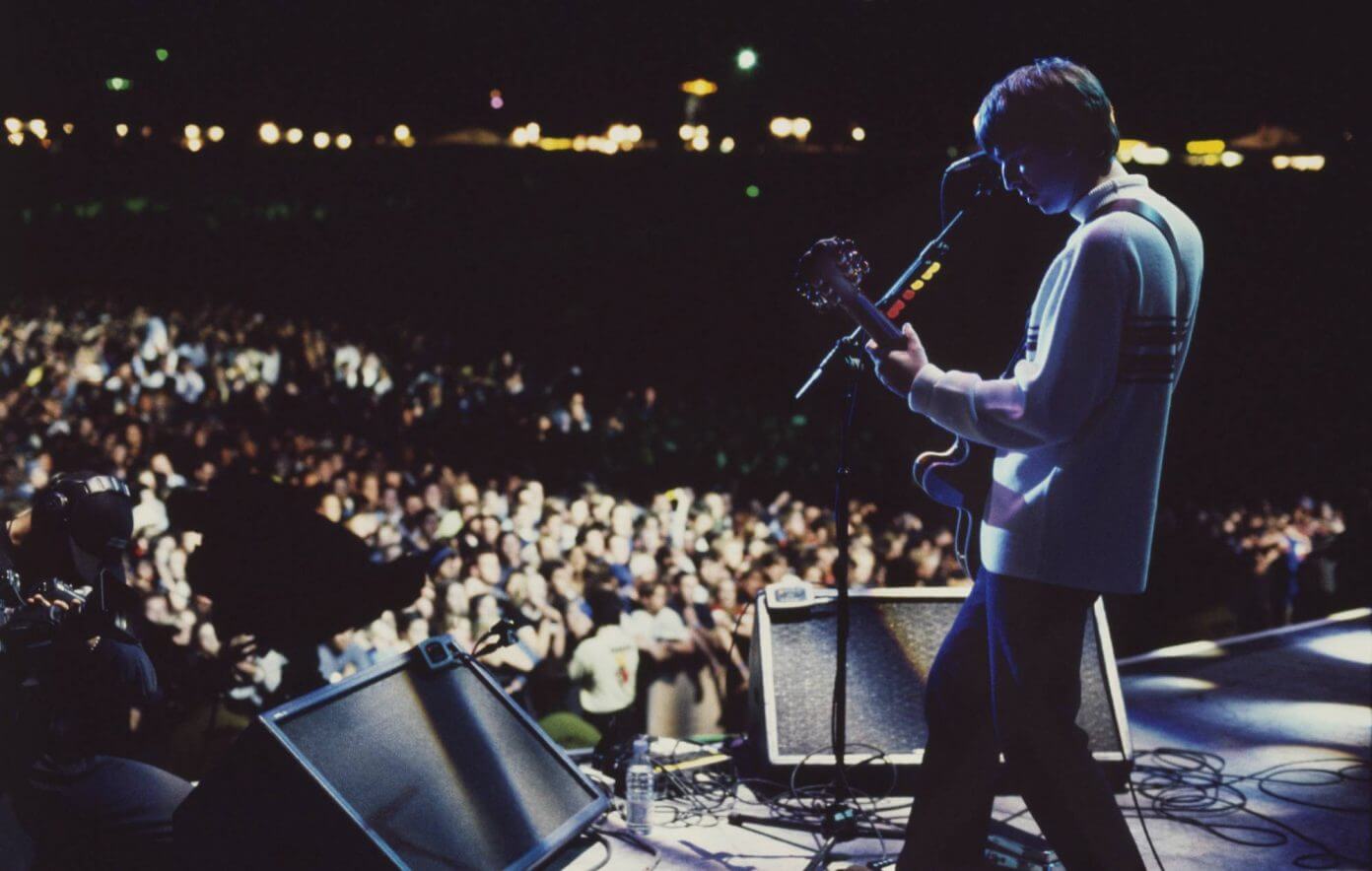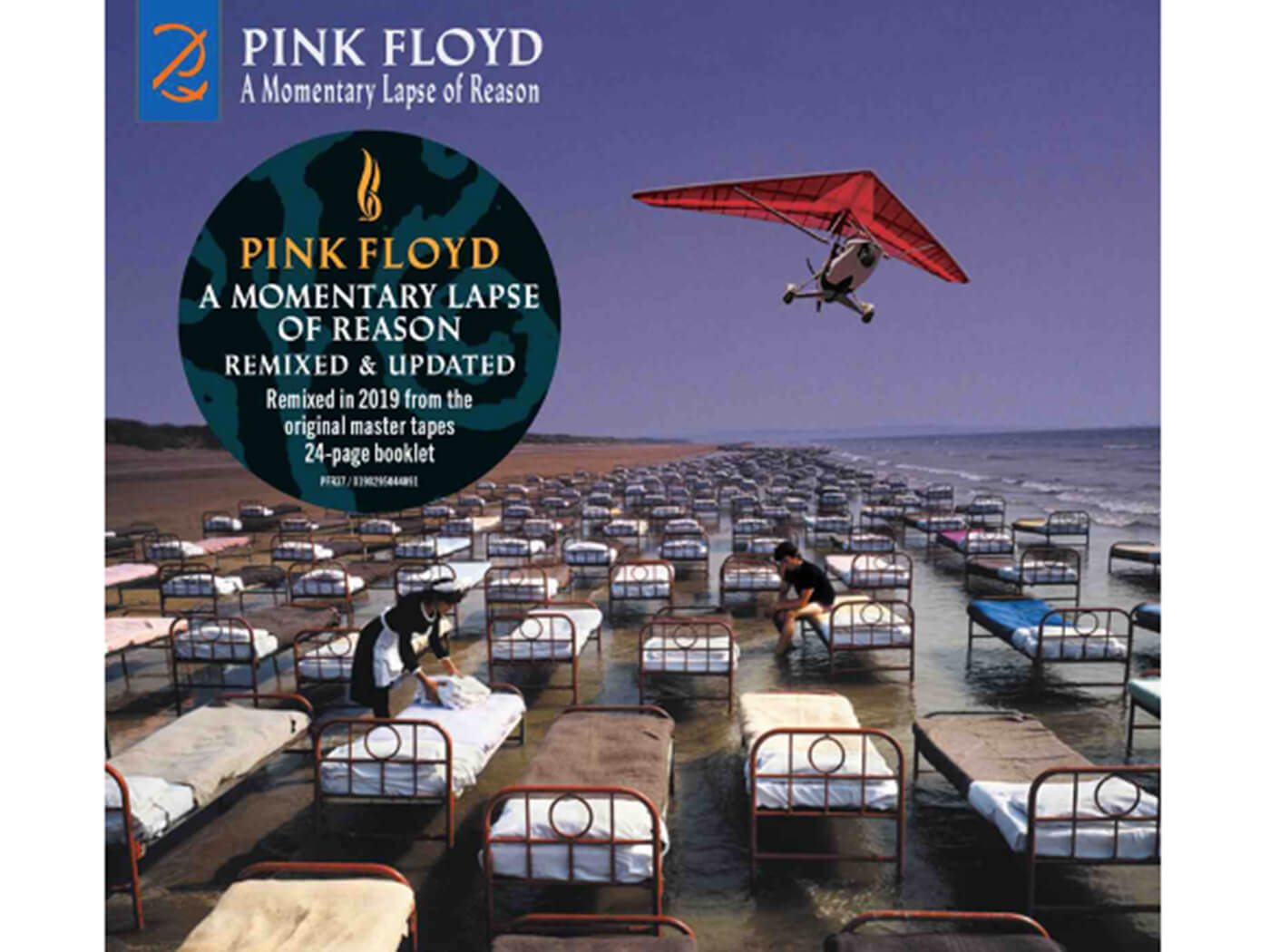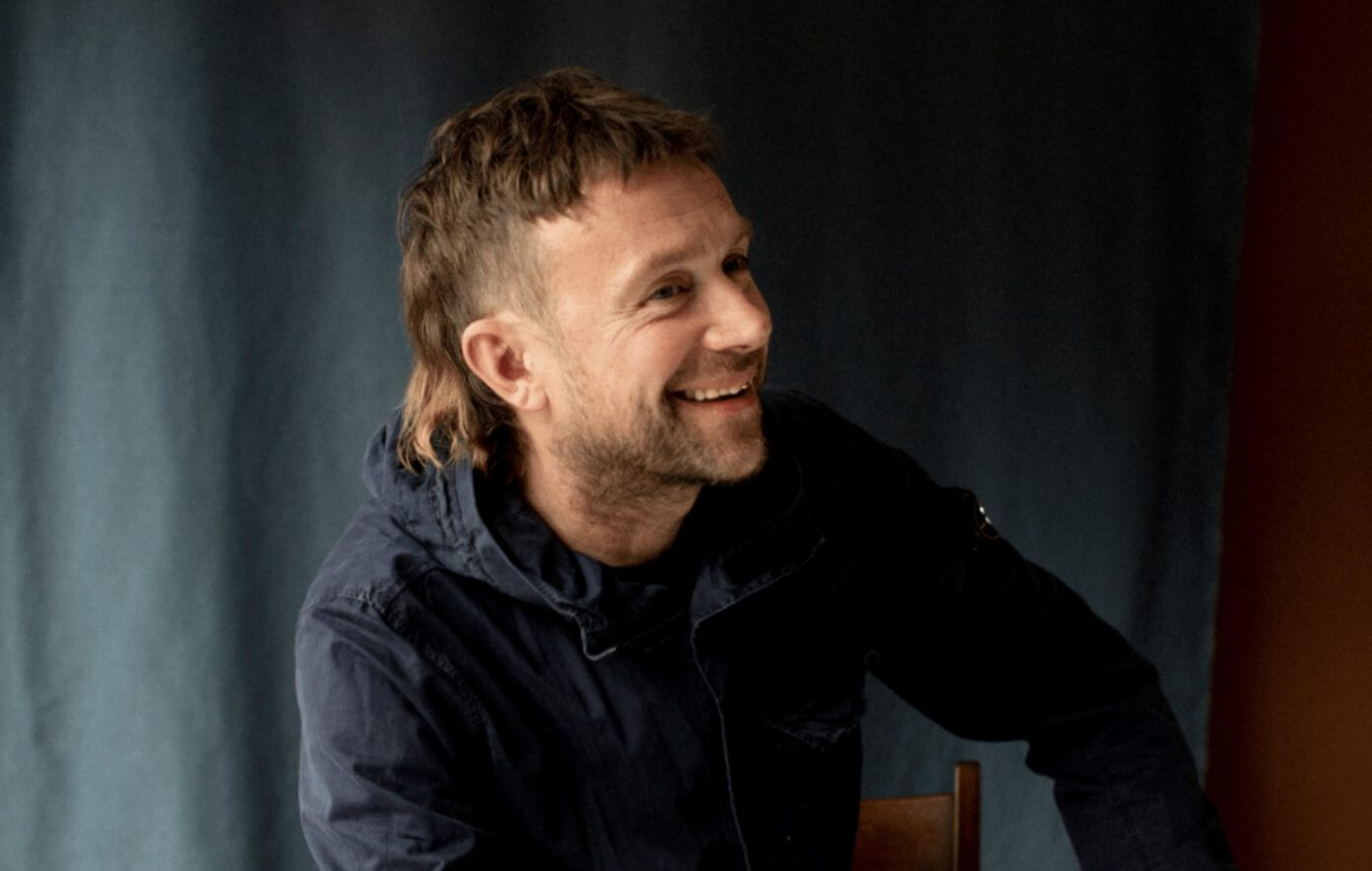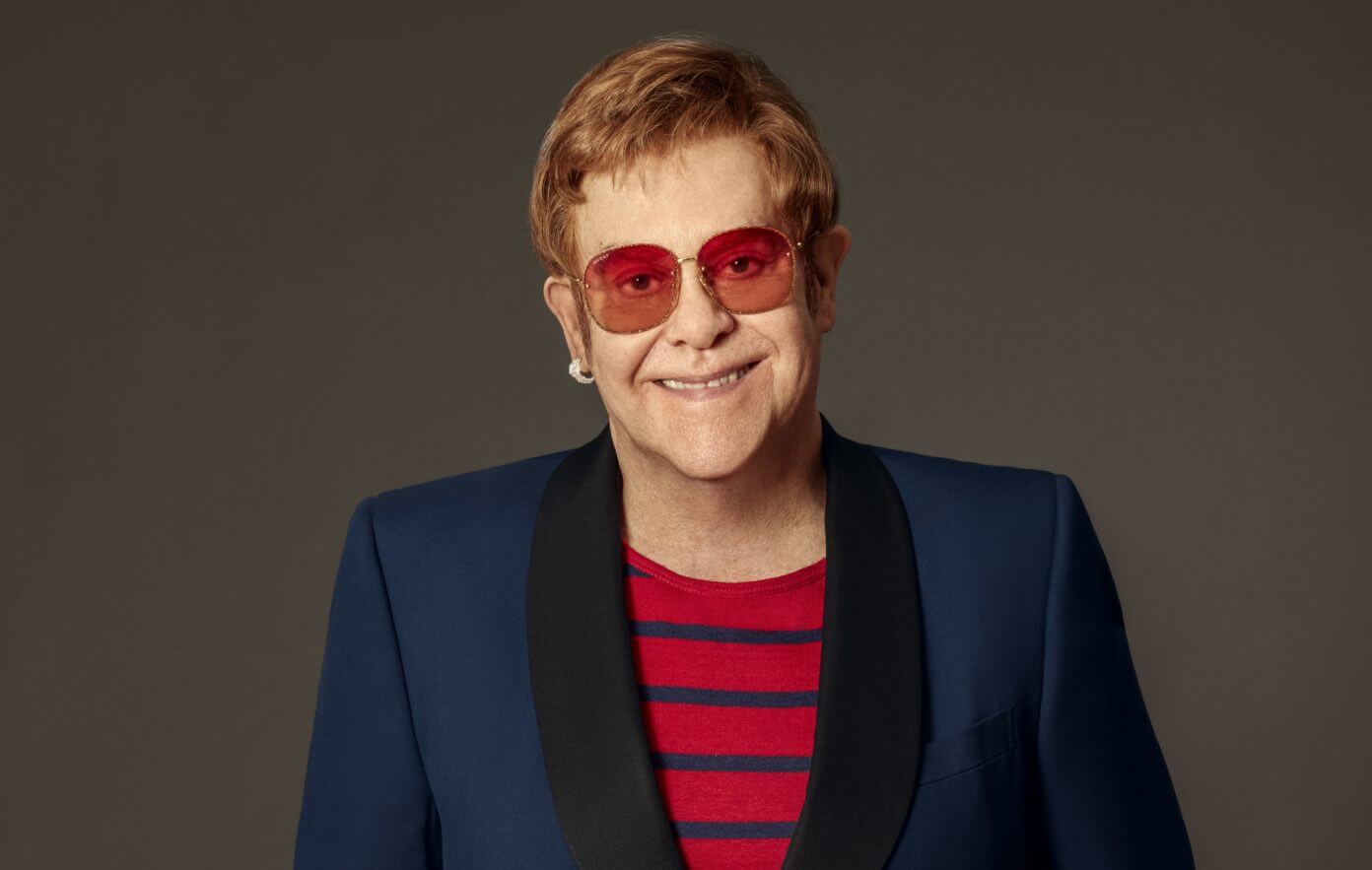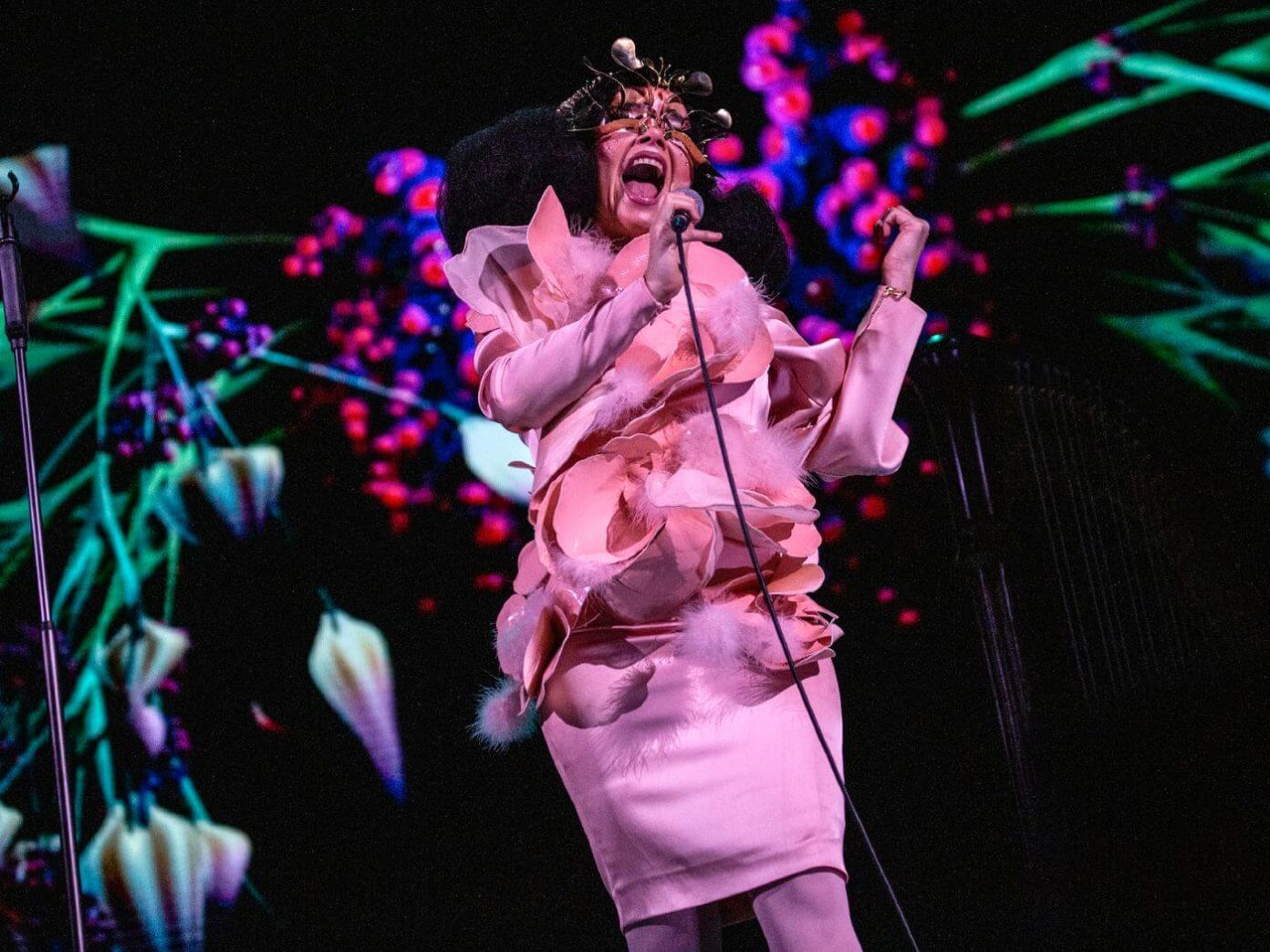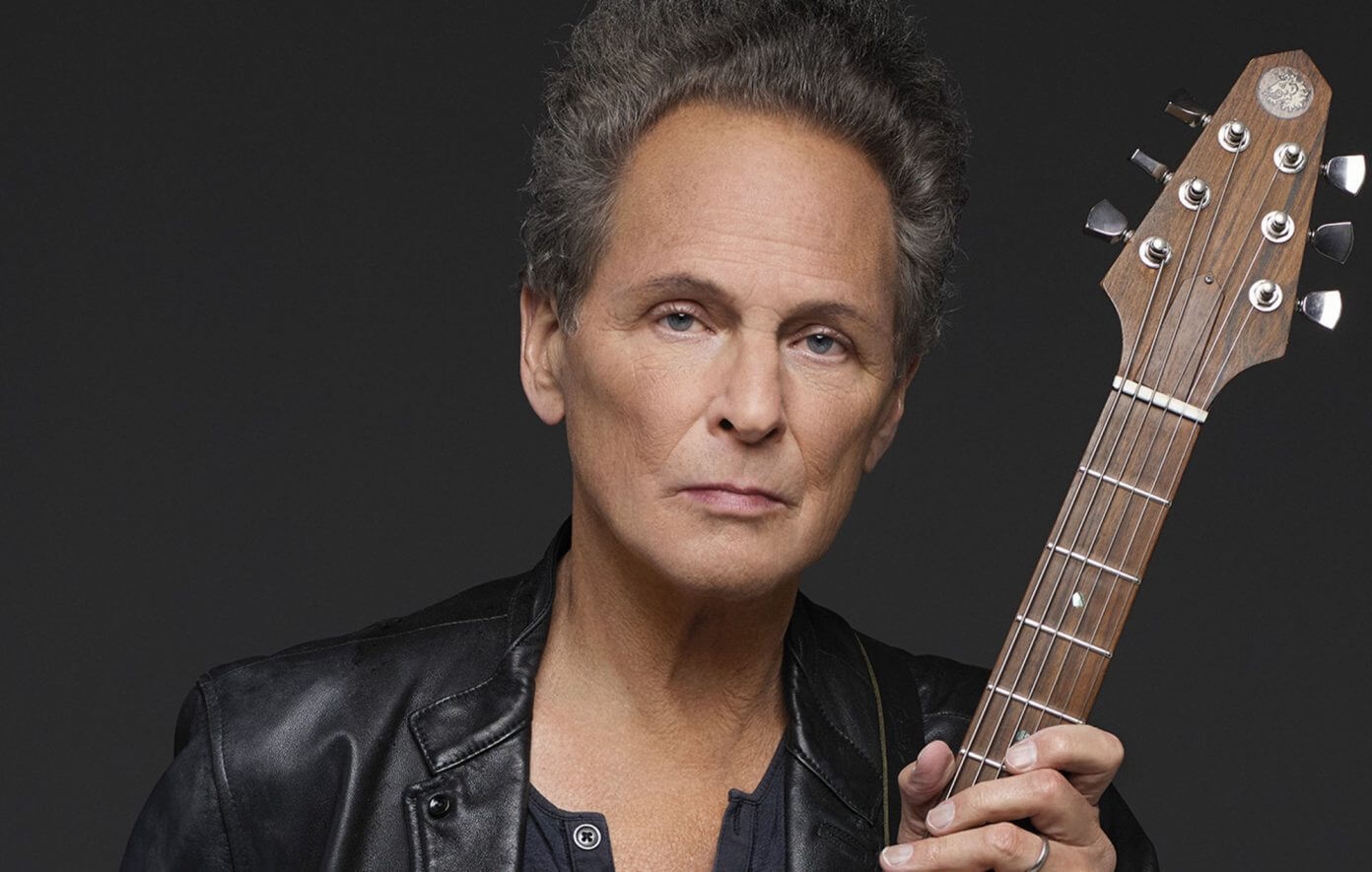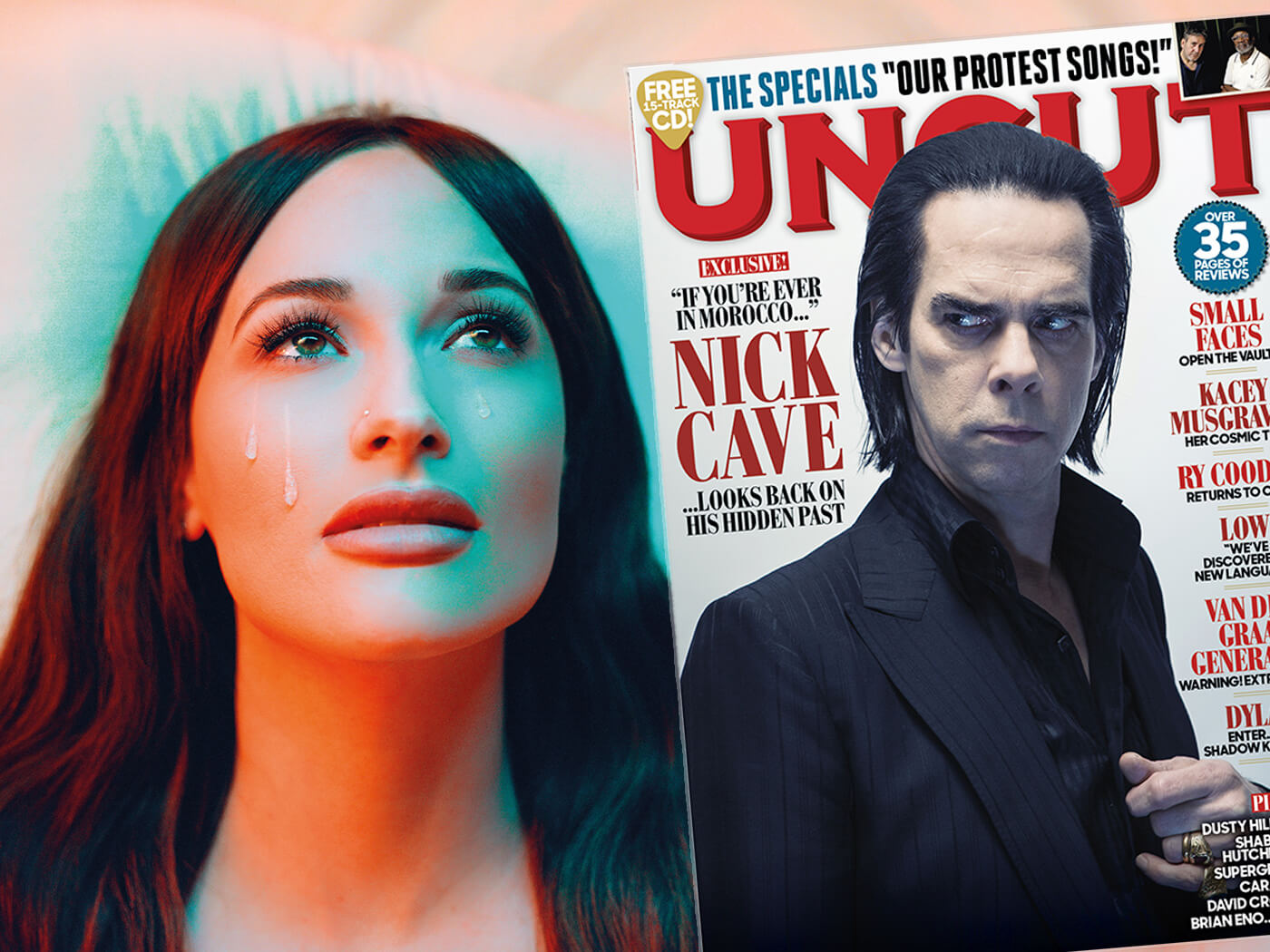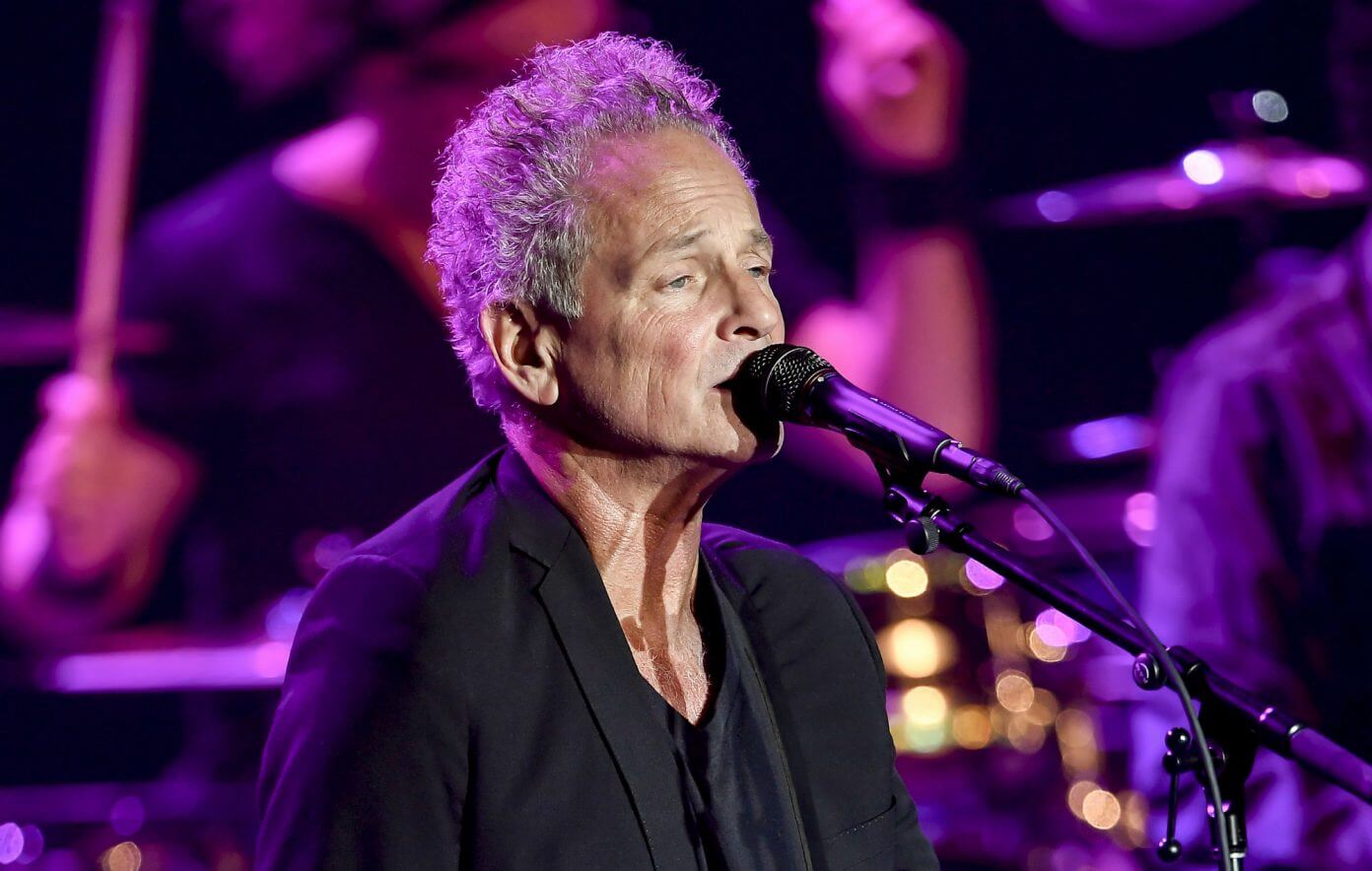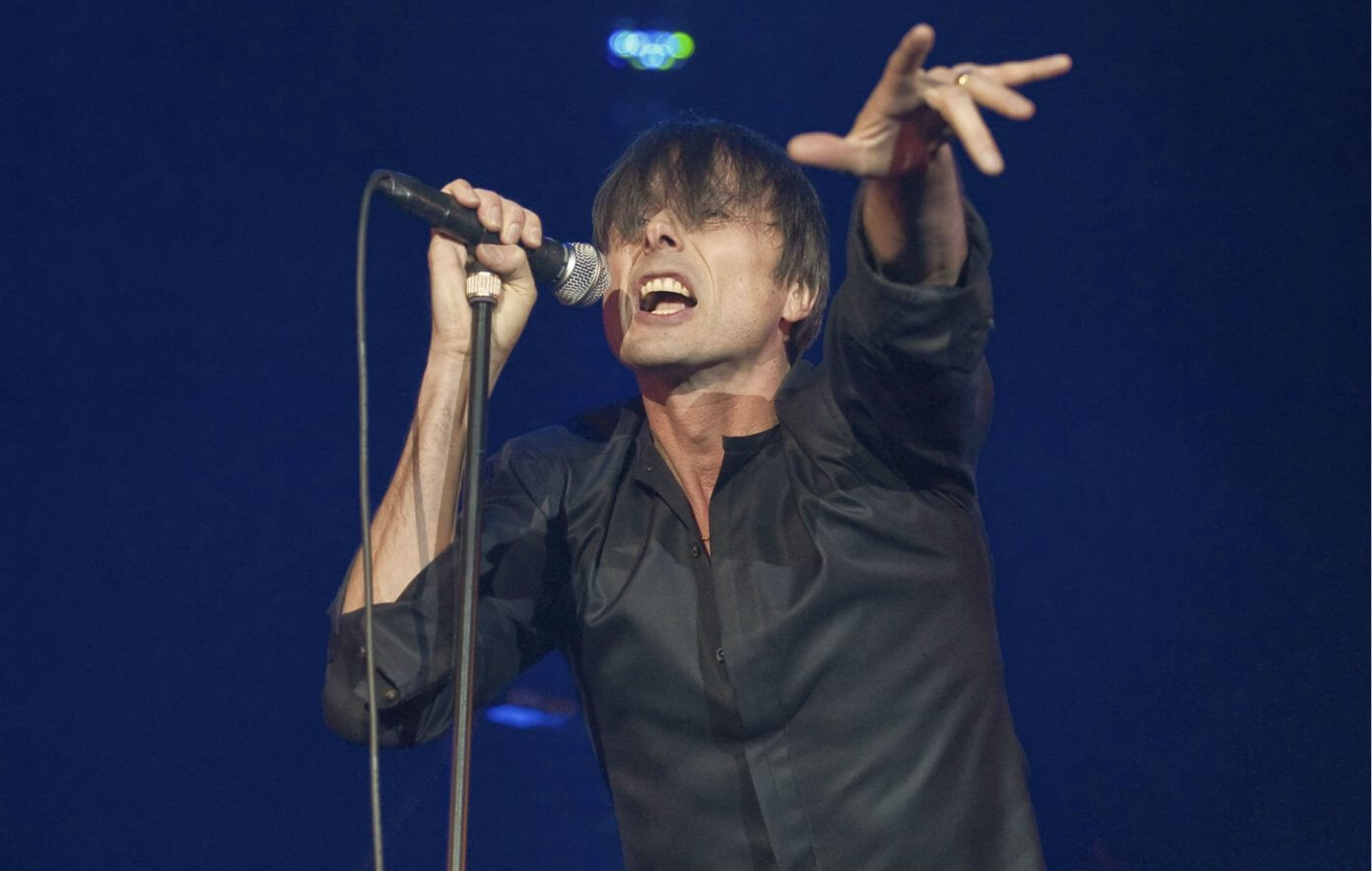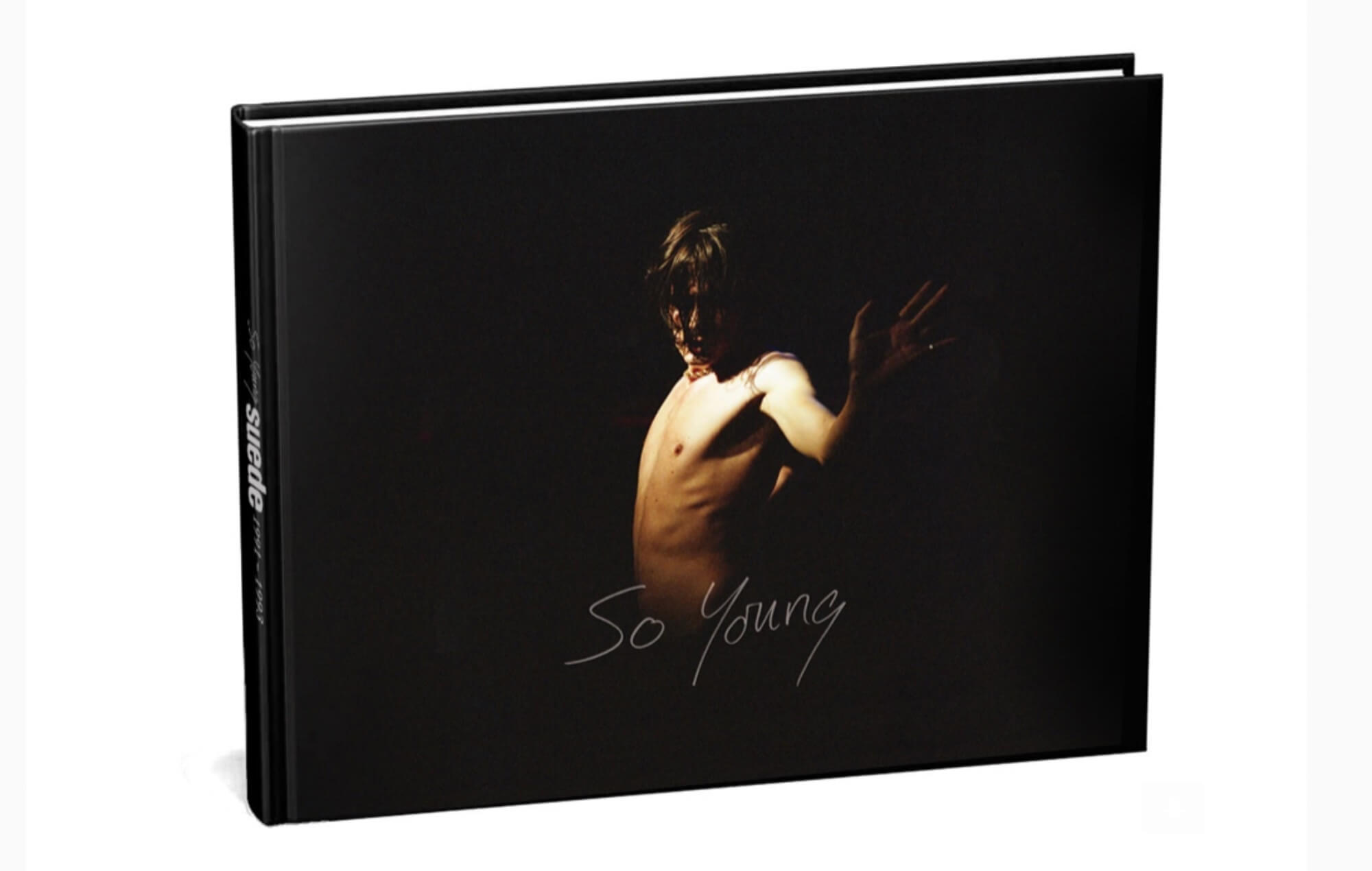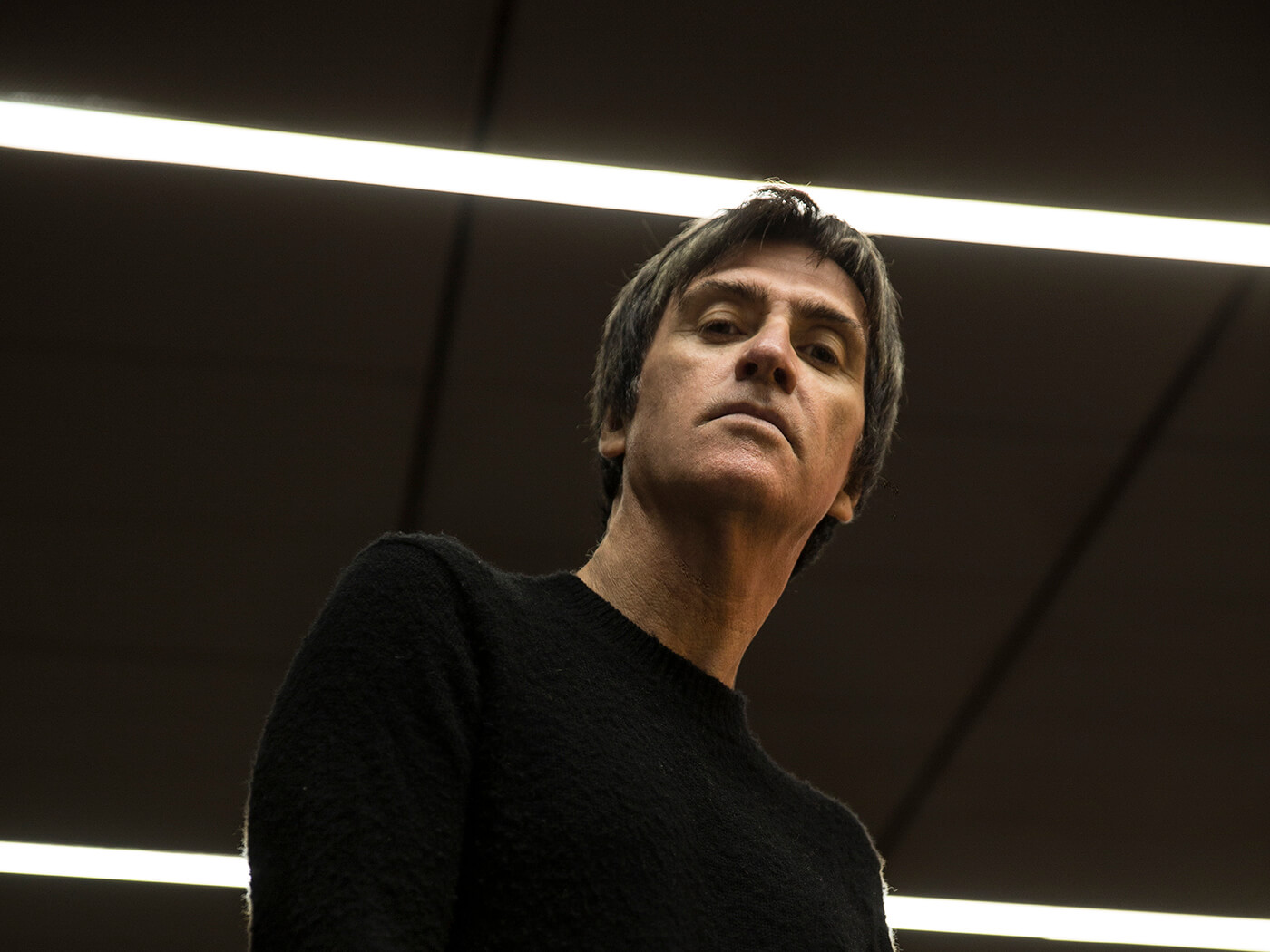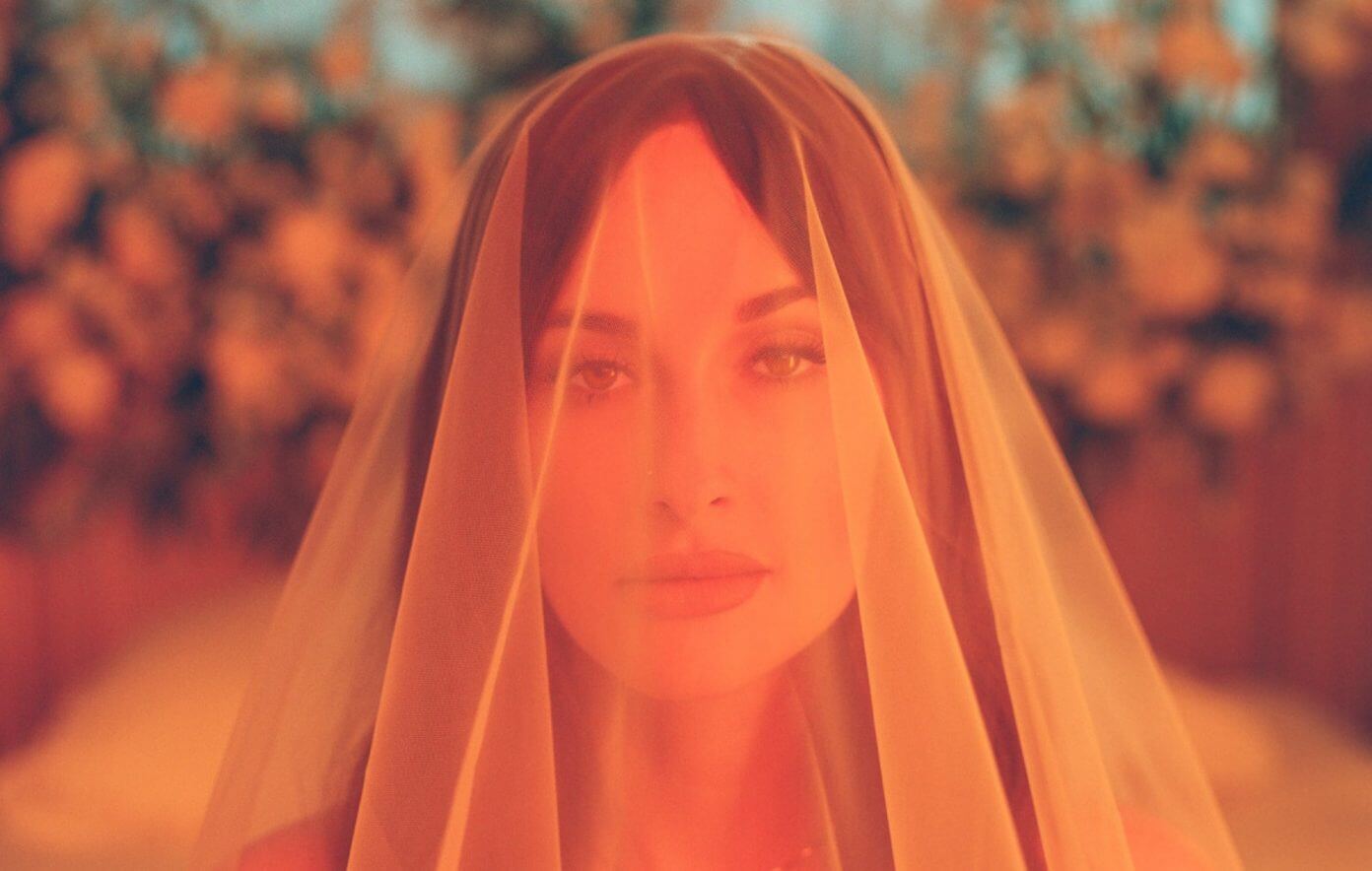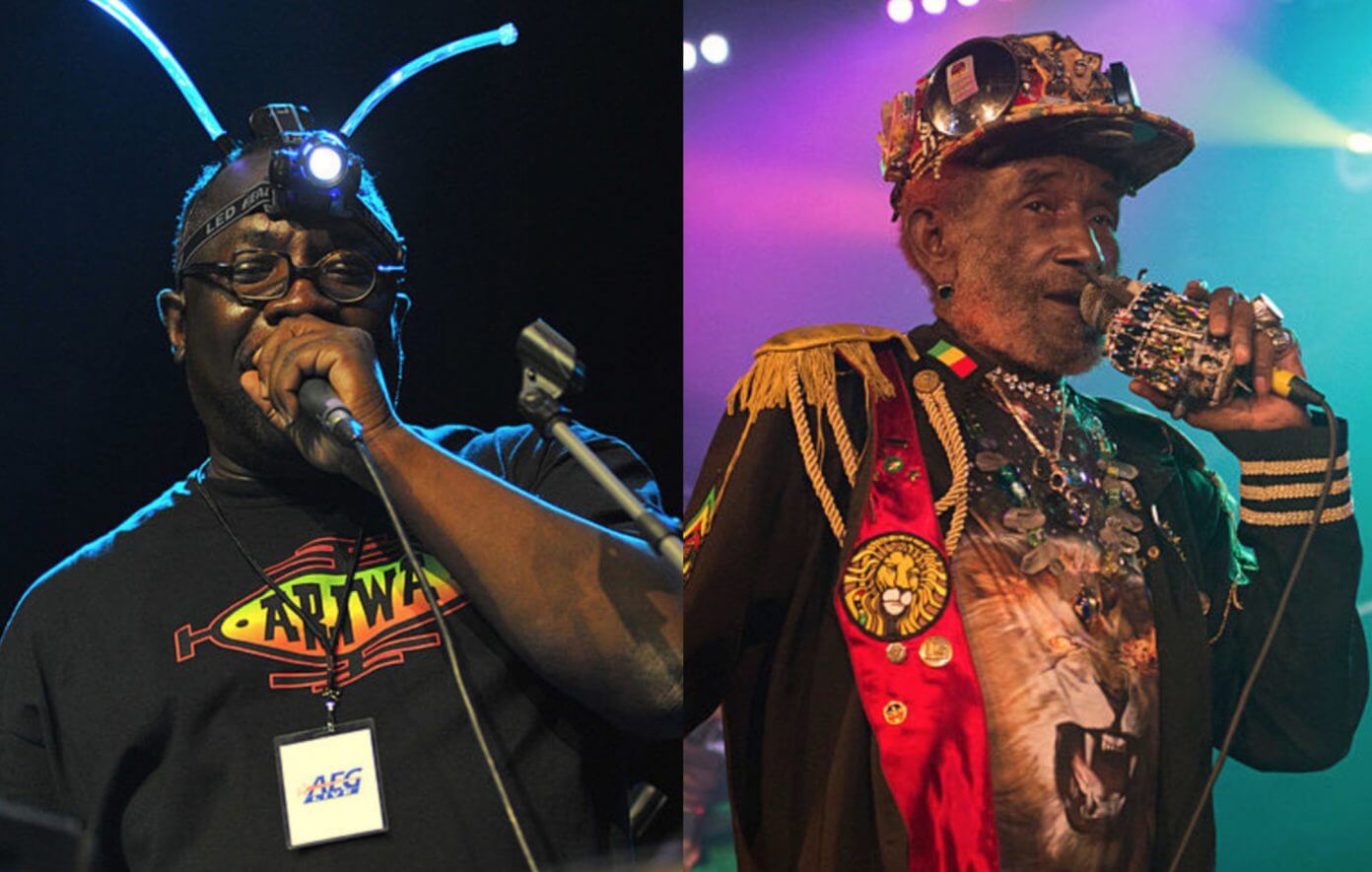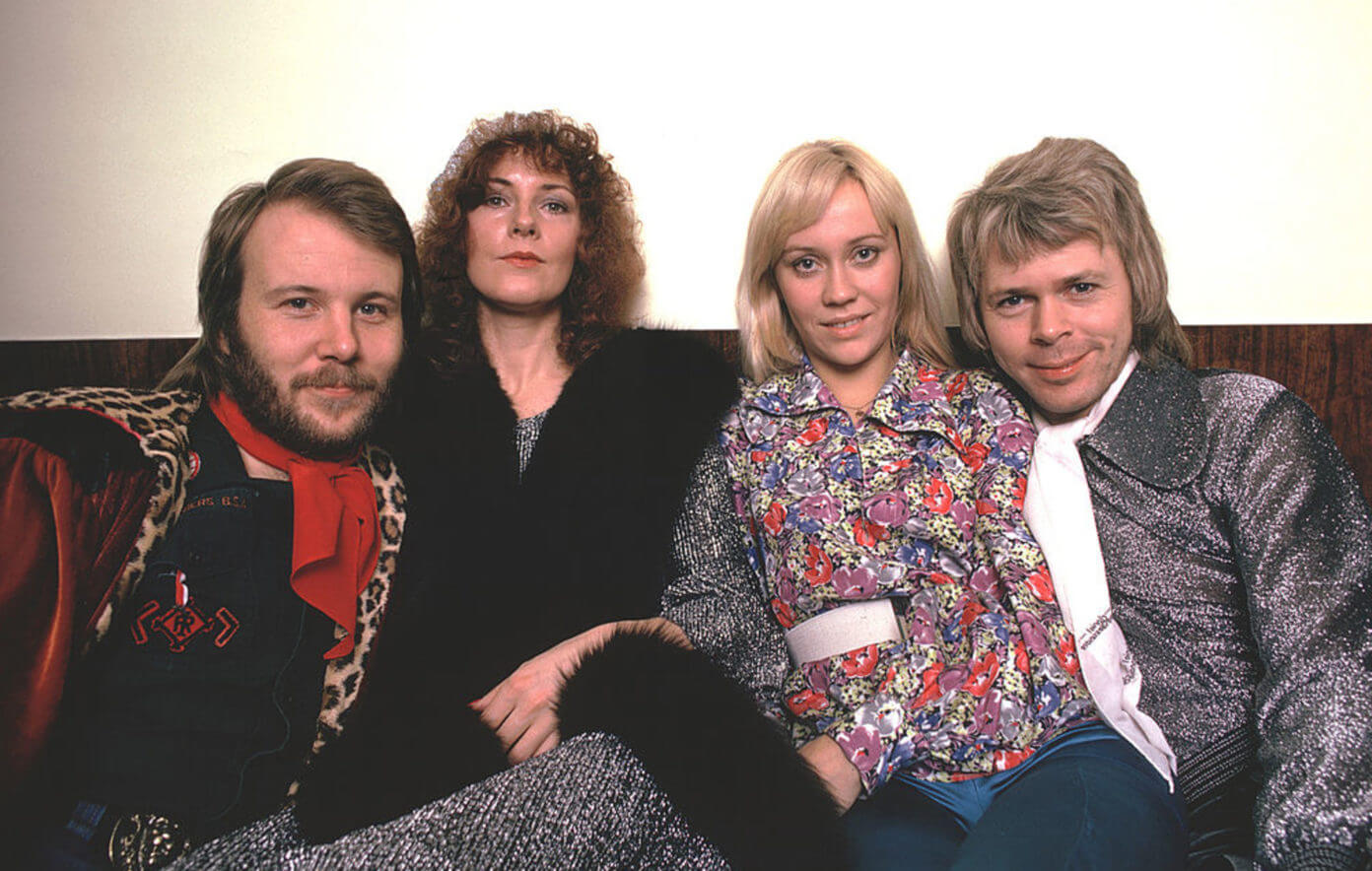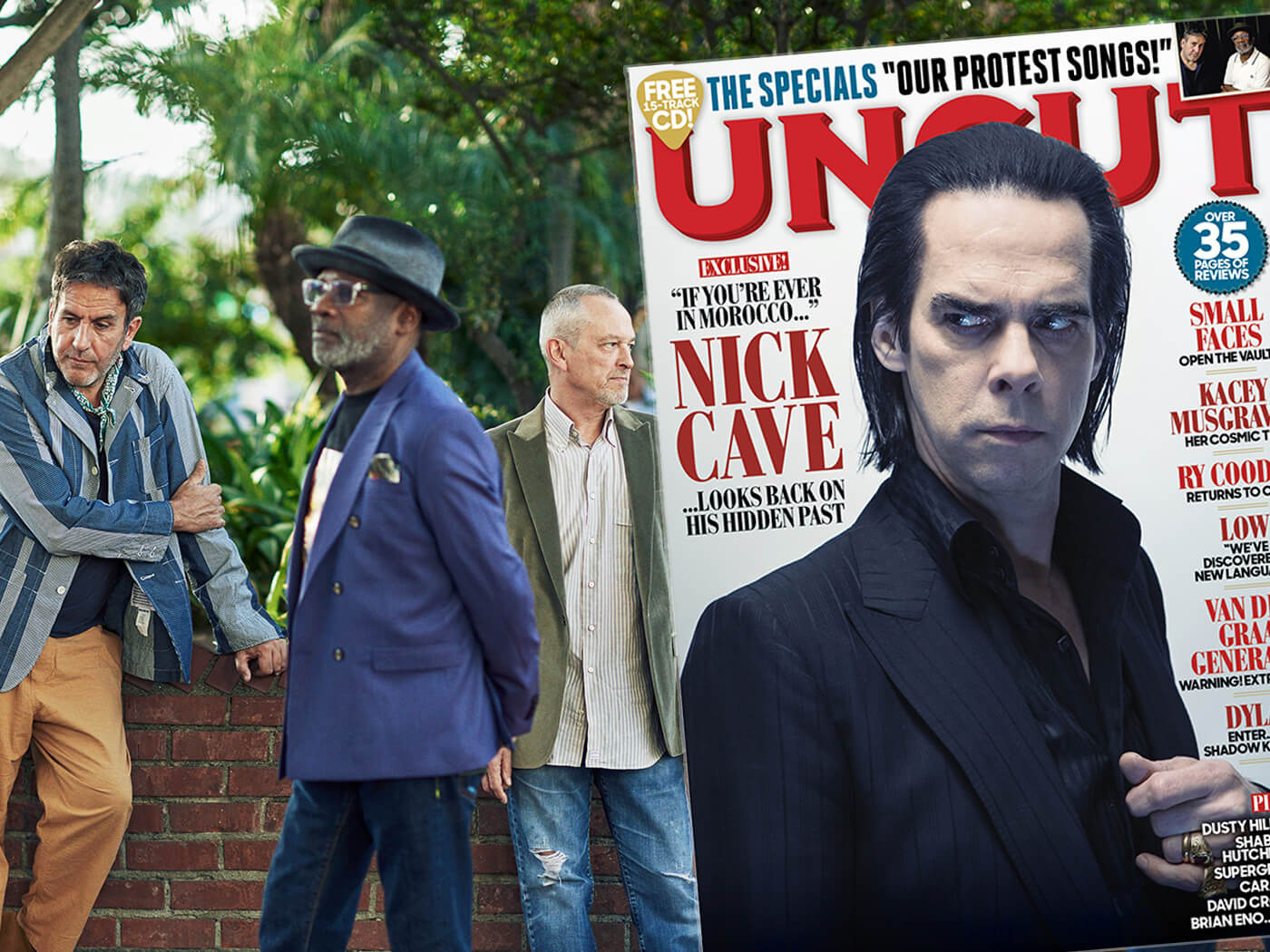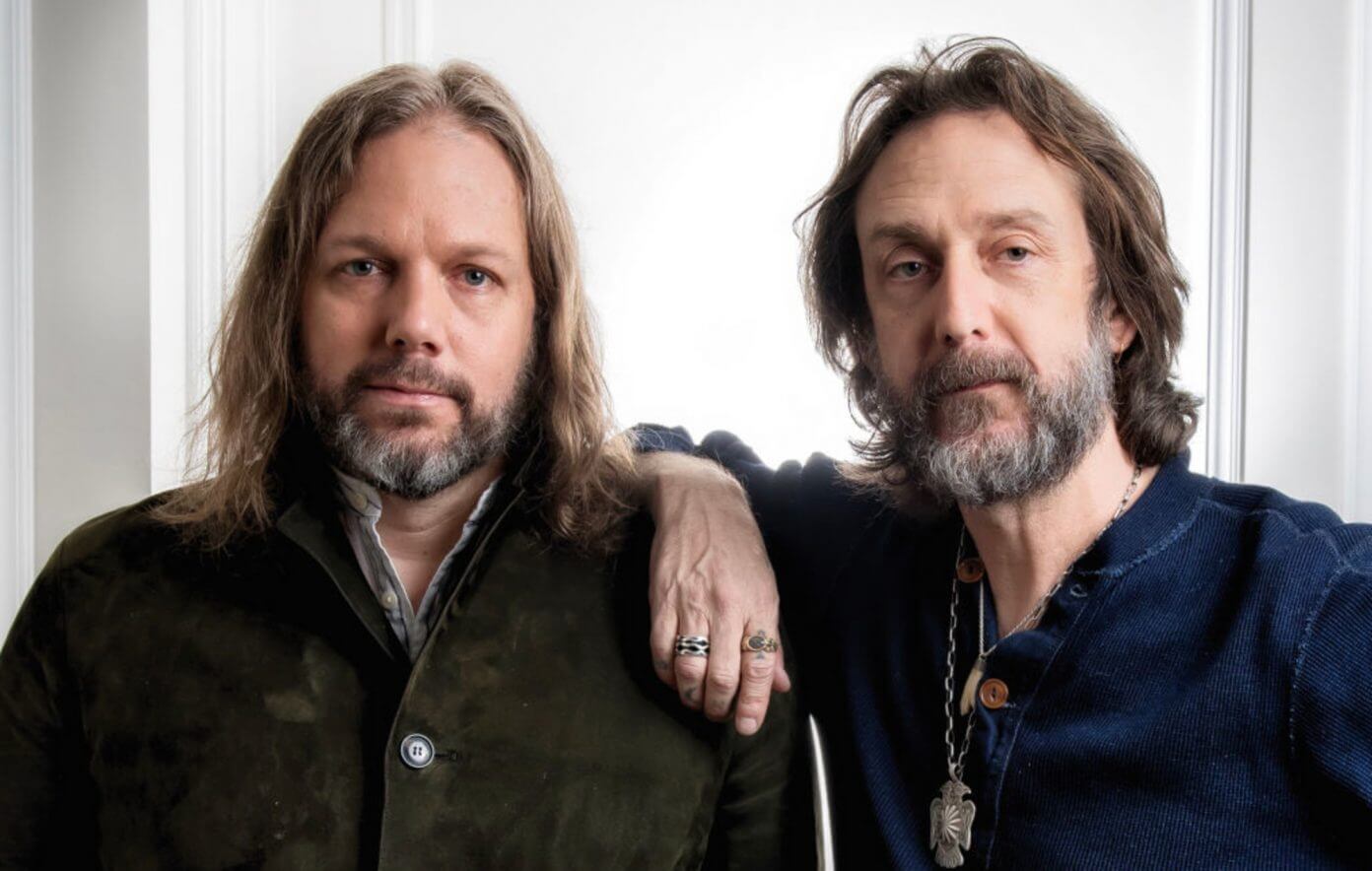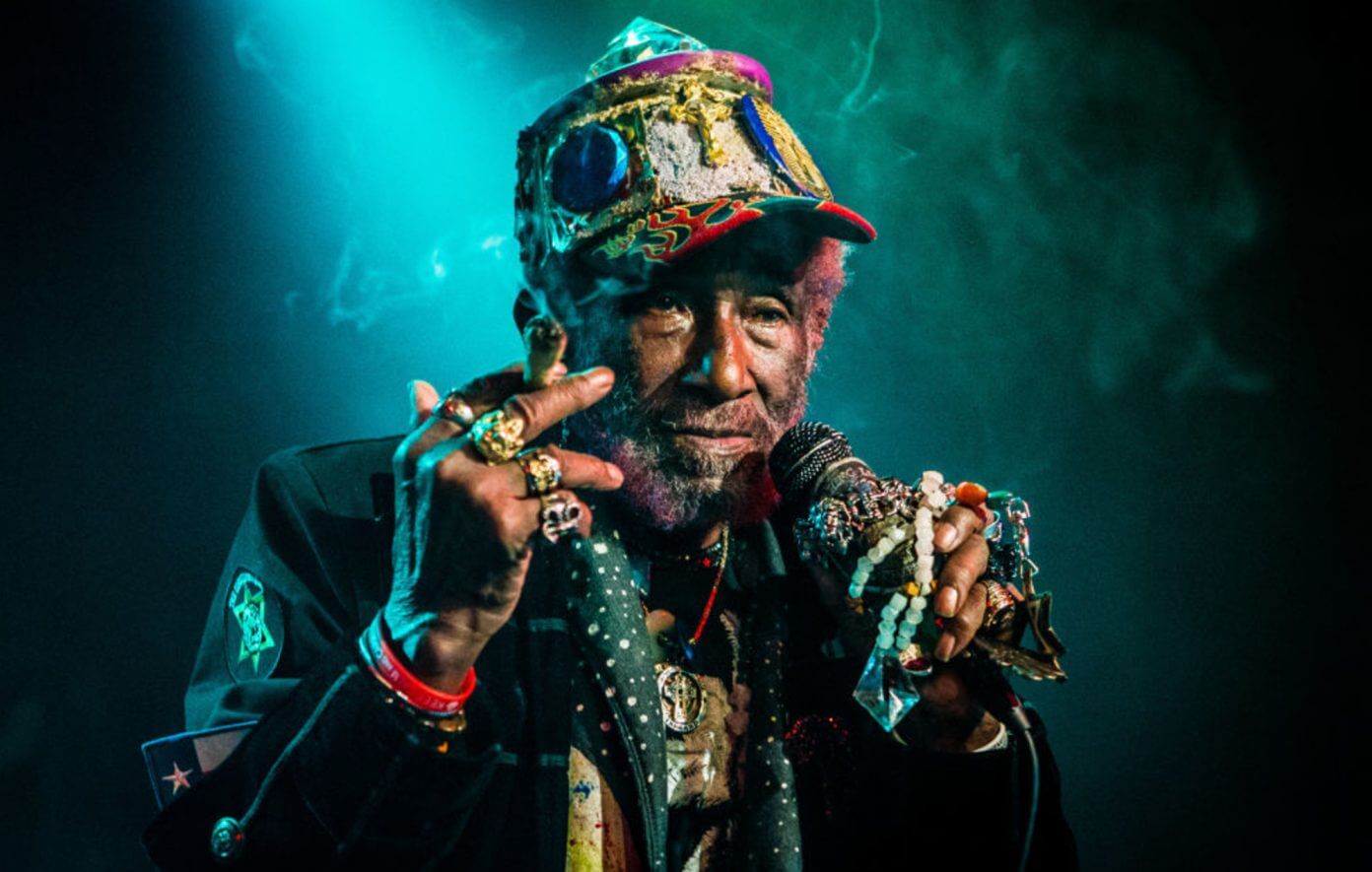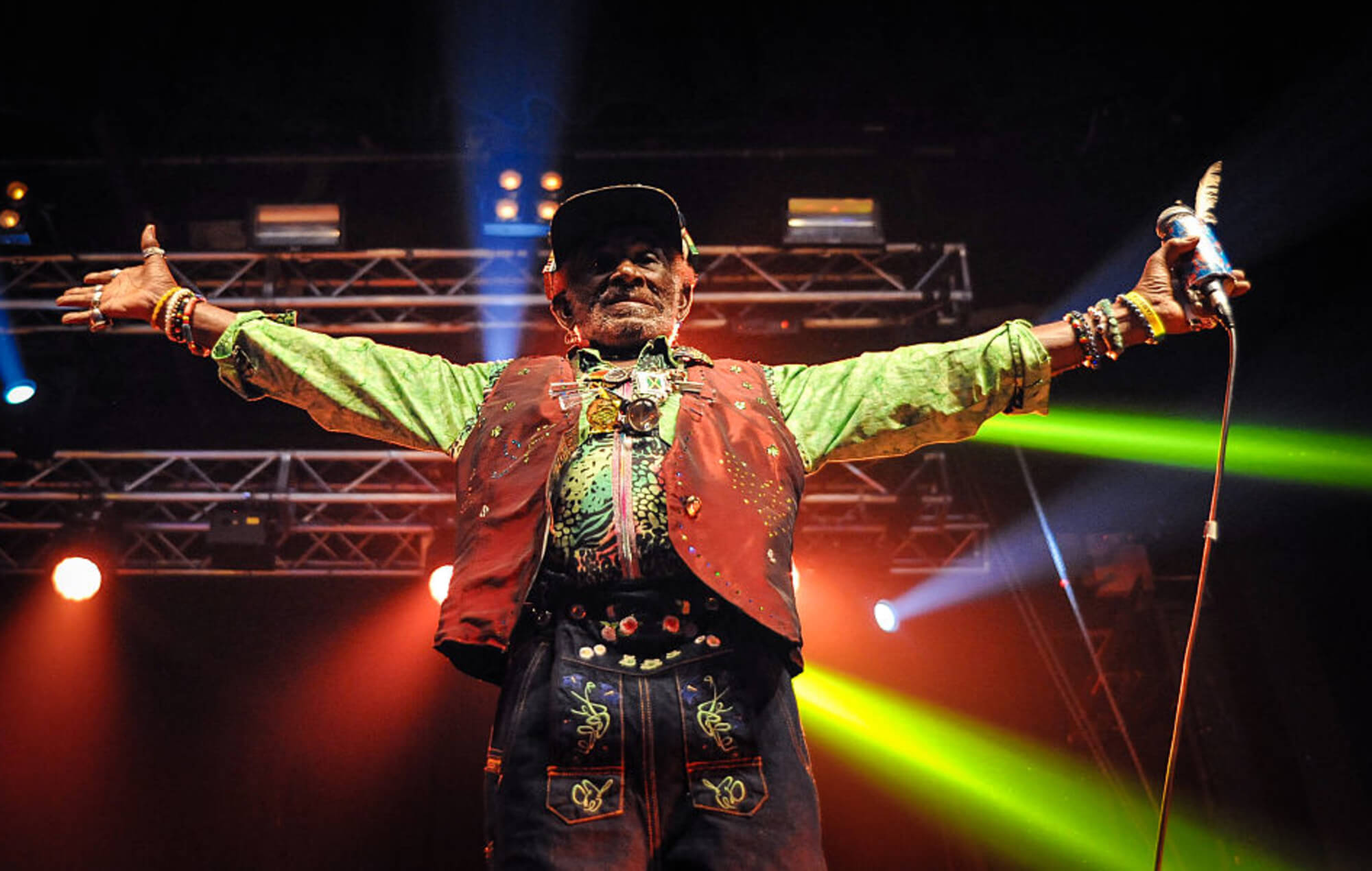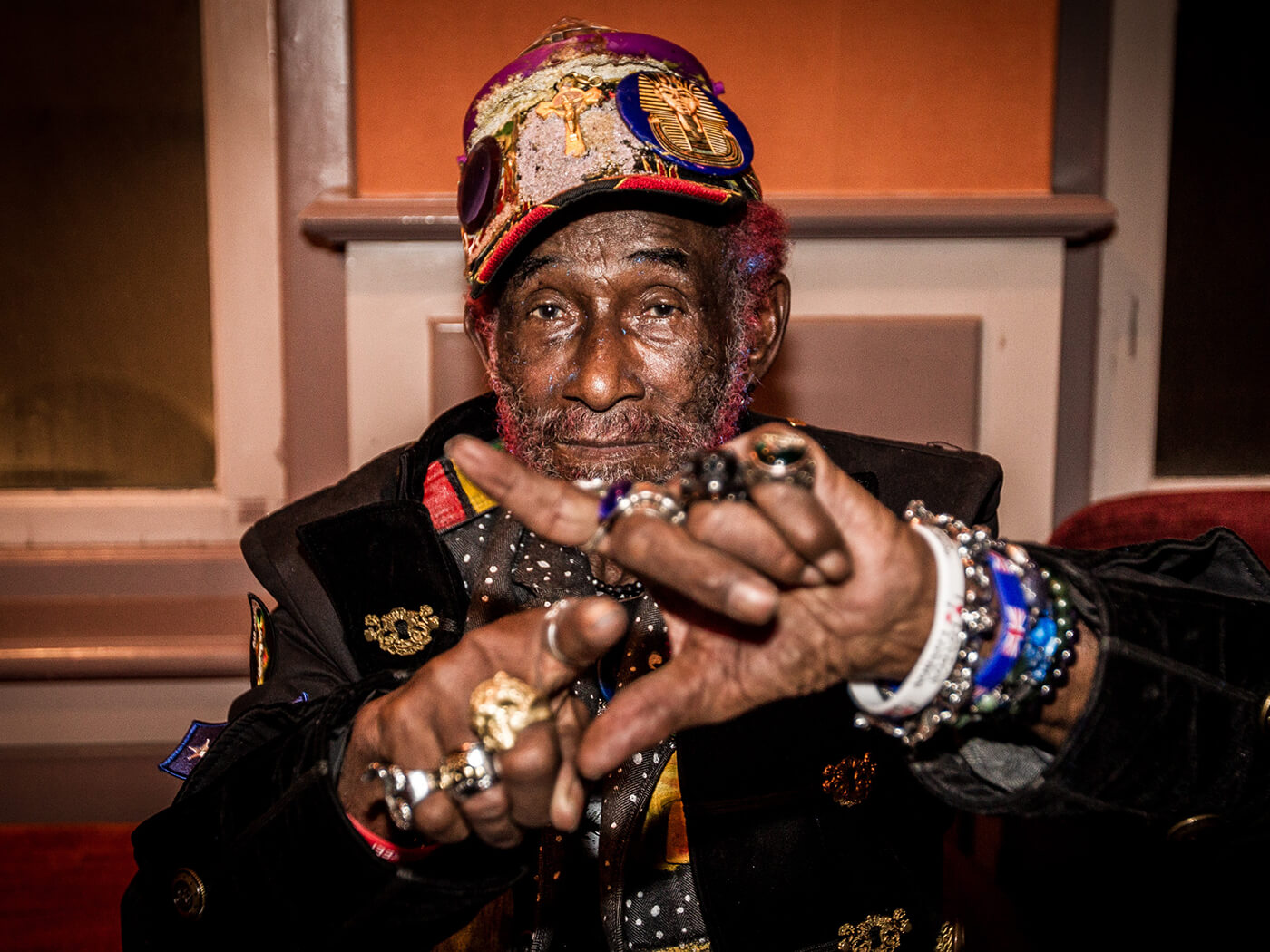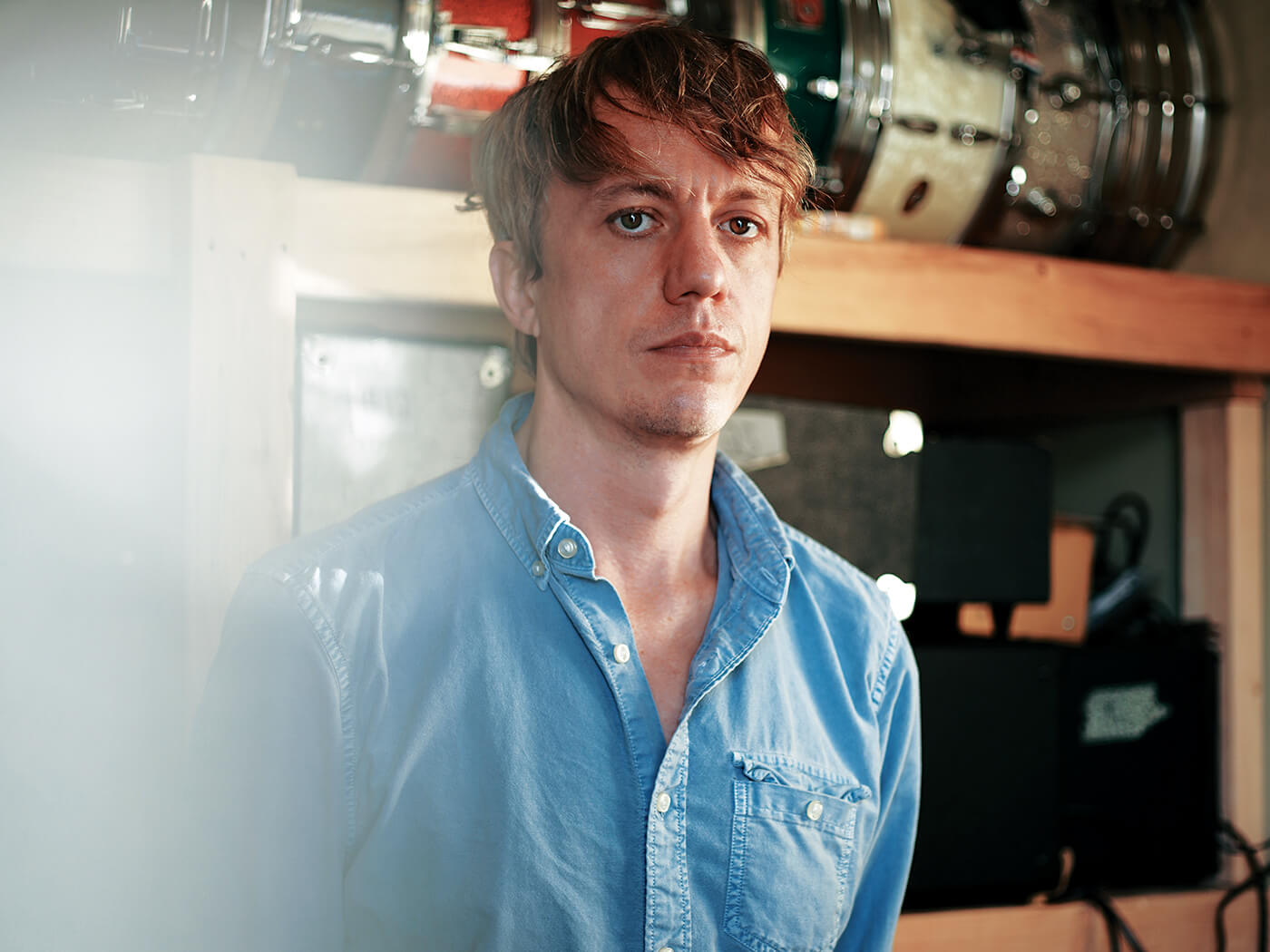Lee ‘Scratch’ Perry has died aged 85. To mark his passing, here’s our interview with the reggae visionary that originally appeared in Uncut’s June 2018 issue.
“People think
I’m mad.
If it wasn’t for that, I don’t know what would happen…”
Welcome to a quiet backstage chat with LEE ‘SCRATCH’ PERRY. As the godfather of dub holds court in his own indomitable fashion, Graeme Thomson hears tales involving Bob Marley, The Clash and Perry’s own fabled Black Ark HQ. There is the British monarchy to consider, as well as “the devil’s business” and some of the most enduring records from the golden age of Jamaican music. “You say this is an interview? I say this is an outer-view.”
The man himself requires no such encouragement. His beard and hair are dyed a garish chemical red. His hat is festooned with badges, sphinxes and mirrors, while his multi-patterned jacket has a cartoon alien on the front and a huge psychedelic sunflower on the back. The epaulettes are the colours of the Ethiopian flag. His fingers are ringed with massive rocks, his neck adorned with beads and jewellery. His vibe is imperial imp, a mercurial and slightly menacing space-dub pirate. Perry gained his nickname from his first recording, “Chicken Scratch”, cut in 1961, but his other nom de plume, the Upsetter, is perhaps more fitting. “My style is to criticise, to warn with rain and fire,” he says. “Is a fire-style! I am the burner.”
During the show there were off-beam eulogies to Haile Selassie, ganja, vegetables and monkeys, balanced by fierce words of condemnation for cigarettes, meat-eating “cannibals”, Marley and Island Records boss Chris Blackwell. The audience – ranging from star-struck teens to grizzled campaigners – passed him spliffs while a young woman joined him to skank along to “Sun Is Shining”, the song Perry first recorded with Marley and The Wailers in 1971. The light glinted off the mirrors on his hat as he shuffled around, demanding that we “grin like the monkey” and toasting his “divine fans” with ginger wine.
It was good theatre, but there was also some fine music – deep, dark and heavy. We heard a terrific “Super Ape”, from The Upsetters’ 1976 album of the same name, a spacey rendering of Marley’s anti-establishment anthem, “Crazy Baldheads”, and
a soulful interrogation of The Staples Singers’ “If You’re Ready (Come Go With Me)”.
Yet it amounted to a mere sliver of the legacy of one of music’s few genuine game-changers. Perry was
a pioneer at the legendary Studio One in the early ’60s, mentored Marley before he became a superstar, and made some of the most sonically innovative and enduring reggae records of the ’70s at Black Ark, the low-tech, high-concept studio he built in his back garden which boasted “four tracks on the machine, 20 from the extra-terrestrial squad”. Later, his unique talents were sought by everyone from John Martyn and The Clash to the Beastie Boys and The Orb.
Now, as his band sprawl on sofas and
his tour manager arranges Chinese food, Perry turns his attention to Uncut. “You say this is an interview, I say this is
an outer-view,” he proclaims in an unvarnished Jamaican accent. Cases
of cider and Guinness sit on the table, untouched. On top of a small blue suitcase lies a twiggy bush of pungent weed. A few years ago, Perry claimed to have stopped smoking. If so, he has clearly reconsidered. He stuffs the bowl of his pipe, which glows like a Belisha beacon, draws in the smoke, and leans back.
Conversing with him backstage – and again three days later, from his home in Switzerland – involves negotiating a blizzard of puns, rhymes, riddles, scatological riffs, detours and non-sequiturs. He makes a series of lurid allegations about the British royal family and suggests that Uncut change its name
to “Good Luck”. As he meanders through
his singular career, you begin to better understand how Perry has created such
a unique and innovative catalogue. His thought process is entirely his own. “I was
a human being, now I’m an animal,” he states matter-of-factly. “Now I am a fish. Right?” I nod solemnly. He smiles. “OK. You ready to do the outer-view?”
What were your earliest musical loves?
I loved dancing. Right at the start, I love dancing to the sound system. I use me own sound system to dance. Then I start to love music. Mostly foreign music, good artists. I was listening to rhythm and blues and a little jazz, but I loved soul music very much. Otis Redding used
to be one of my best artists – you know the way Otis Redding sing? Beautiful. Gladys Knight And The Pips; The Impressions, and Curtis Mayfield.
You came to Kingston from the countryside. In 1961 you started working with producer Clement ‘Coxsone’ Dodd at Downbeat Sound System and then at Studio One, alongside people like Prince Buster and U-Roy. Was that
a good time?
Me and Coxsone get together because at the time he was a bit better than the rest, he was on the top. But they never liked my style. My style was too judgemental. Prince Buster was a nice guy, but you never hear about him. He was a friendly person.
You fell out with Coxsone finally over the lack of money and credit.
Me like to create justice. Coxsone only can copy. If you want him to compose a song, it take a million years, but if you want him to copy a song, he can do that. He wasn’t really a promoter or a producer, he just a user. Coxsone was a user, U-[Roy] was a user. Most Jamaicans are users. Most of them are politicians. See, I’m not
a Jamaican, I’m an African-Ethiopian. But Coxsone have no influence, he was not bright enough.
With tracks like “People Funny Boy” and “Run For Cover”, which you cut in 1967 and 1968 after parting with Coxsone, we hear the seeds of reggae.
Yes, you’re right. It’s the start. “People Funny Boy”, “Run For Cover” and [The Pioneers’] “Long Shot”, songs like that. Then “Return Of Django” was a hit. It bring me to London, that song. They use it in a chocolate commercial, and it become a hit. It come out of a blue sky and into the chart. I like London very much, but bear in mind everything didn’t go right for me in England. Everything is about people going crazy about things that me saying.
What did you say?
What me say in England, is that the Queen
is a bad mind! The Queen of England is a cannibal. The Queen not
in my dream.
In the late ’60s you set up the Upsetter label and established your house band. What were your aims?
Me come into it with a spiritual toast. Dancehall is dangerous people with gun and ratchet knife and all them things. Me decide
to make different music. Me start to make holy, righteous, Godly music. Jesus music. I had to choose different things from other people, I had to choose the things that I love. See, I wasn’t born in Kingston. I was born in Hanover, so why should
I make Kingston music? I’m not a rebel, so why should I make rebel music? I’m not a devil, so why should I make devil music? And I’m not from the ghetto, so why should I make ghetto music?
Do you remember the first time you met Bob Marley?
Yeah, he was singing for a guy they called Beverley, a Chinese guy [this was Leslie Kong, a prominent Chinese-Jamaican producer who set up Beverley records and discovered Jimmy Cliff]. Bob was singing a Coxsone tune, ska music. He was not in the spiritual world,
he was in a rude boy world! A rebel world. Very close to the devil’s business.
What made you want to work with him?
Maybe me want to help him. To me, he was just like a little boy who needed help. I think he did need some spiritual help and some spiritual knowledge. So I take him to my spiritual college, and tried to teach him spiritual knowledge. I did not have any rebel business to teach him. I could teach him about Jesus.
The story is that Marley stole Aston and Carlton Barrett from The Upsetters for The Wailers.
He not steal them, me gave them to him. People think him steal
the boys, but no, he didn’t steal them. Some of them were corrupted, too. They were really rotten inside. Them
looking like human beings, walking up and down, but
them cannibals.
You still perform Bob Marley songs: “Crazy Baldhead”, “Sun Is Shining”, “Exodus”. Are you proud of the work you did with him?
Yeah, “Crazy Baldhead” is very good. I love it, I am addicted to that tune! I’m proud of the fantastic music, it couldn’t be better. He was one of the best artists I’ve ever met. He’s one of the artists that you think, he’s not going to do anything unless it follows what you did and improves on it. You can depend on them. He was something very good. I don’t know the bad part of him. The real bad part of him was his soul.
On stage tonight, you said that he sold his soul. What did you mean?
Well, man do things for money. Human beings do things for money. Him didn’t do what was right, so God killed him.
If he had given me his soul and not sell it to Chris Blackwell, he would be here still. It’s a shame he had to do that. They got
him corrupted. His fault, not mine.
Bob Marley took to manifest himself as being a rebel. Bob Marley became reassured that everything would
be OK, that him be a rebel and be a devil, but him
were paid to be God! When he hear that he was like
a preacher and a prophet, I think that mess with him
big. Him were judged to be Godly. Some big problem happened there.
You sound angry at him.
Why should I be angry? Revenge is manifest. Why should I hate him? What
I give I get, and what him give him get. If Bob Marley loved Selassie I, he would not die. I think he should be here. It’s not nice that he’s not here now, but if he’s not here it’s because he made a mistake, or his family made a mistake. And it’s not a good mistake to make, because I like him very much. He was my best artist. He was too good.
You also condemned Chris Blackwell from
the stage tonight, calling him the devil. Island distributed your own productions, and many people would praise the contribution he made
to reggae.
Of course, he did something good, he tried to help reggae music. He did help reggae music. It wouldn’t have been so big without him. He put his money in reggae music and he deserved to get back his money. But devil don’t have ’nuff money to pay me. Nobody fuck the Upsetter’s batty-hole for silver and gold.
Perry has lived near Zurich in Switzerland since 1989, with his Swiss wife, Mireille
– who’s also his manager – and their two children, Gabriel and Shiva. Laying roots in Europe marked the end of an unsettled period in the early ’80s. In 1973, Perry had set up a studio in the yard
of his home in Kingston’s Washington Gardens. He named it Black Ark. From this base, he forged new frontiers in spaced-out dub production, becoming a crazed midwife to some of the greatest reggae records every made, among them groundbreaking albums by Max Romeo (War In
A Babylon), The Upsetters (Super Ape), Junior Murvin (Police And Thieves), The Heptones (Party Time) and The Congos (Heart Of The Congos).
By the late ’70s, however, the golden age was starting to fade. Black Ark became an HQ for dark vibes and local heavies. His health and music suffered. The studio fell into disrepair and was eventually destroyed in a fire in 1983. Perry claims he burned it down himself to clear out bad spirits that had infested the studio, his music and his life.
“Black Ark went to sleep,” he says, his voice rising. “There was too much parasite, as regards to when natty dreads was in the Black Ark. I unlocked the Black Ark, I unlocked the black arts, and I unlock my black heart. I don’t want no poor reggae. Poor reggae is poverty. Poor reggae is not good for our Imperial Majesty Selassie I. It’s bad luck. So, by the power invested in me, I destroy poor reggae.”
Other sources insist the culprit was faulty wiring. As ever, the truth arrives liberally remixed with the legend. It’s true, however, that the Upsetter’s life is steeped in flames. A fire at his Swiss home in 2015 destroyed another of his studios.
Somewhat revived by the mid-’80s, Perry embarked on a series of collaborations, notably with Adrian Sherwood’s Dub Syndicate, the Beastie Boys and The Orb. A recent documentary, Visions Of Paradise, proved his instincts as a mischievous provocateur remain intact, as he cast mad magic over his music: tooting car horns, donning yellow Afro wigs, painting with his feet and banging stones. “Yes, I do things perfect,” he smiles. “I do perfect things.”
Who are your favourites of the artists you worked with at Black Ark?
All my records I like, all my records are angels. They are not flesh and blood, they are spirits. Junior Murvin, “Police And Thieves”. Very good. I worked also with
The [Wailers]. [Perry cackles] Bunny Failer. You write his name ‘Bunny Failer’. I did a song with Bunny named “Dreamland”. From the bed in dreamland you don’t stop dreaming.
I love Heart Of The Congos…
Well, The Congos, them all right. Let me say that everything would be perfect but some of the people, they go so far into cannibalism they can’t come out. It pains me. All the rude boys have locks in them hair, dreadlocks, you know, very Holy, then they came and eat meat.
How did you come to work with John Martyn?
How is John?
He’s dead.
He dead? Oh. Who killed him? I meet him with Island Records. He was full of fresh ideas. I write “Big Muff” [from Martyn’s 1977 album, One World] with him, and we also have big puff. He was a good artist, musician, singer. Not all the people are honest like John. All those Bob Marleys…
Your antics in Black Ark became legendary: blowing smoke on the microphone, lighting fires, rubbing the tape head. Do these rituals work?
Rituals! Ah. Everything I do in the studio is rich. Everything me believe in, it works. The reality is
all that craziness, all that madness, I made it work, because it’s nature. It’s natural grace. In nature we have the big space overhead, the big sky, the orbit. Nature is crazy! I want my records to sound as crazy as nature. You see the bass? The part that the bass play in dub – boom boom boom
– that mean the bass poop, right? The drum is the heartbeat – boof-boof, boof-boof – and the bass is the brain cells. This song is the beat of your heart and your gut. That’s dub, that’s how it works.
In 1977 you worked with The Clash on “Complete Control”, after they had recorded a version of “Police And Thieves”…
No, The Clash work with me. I don’t work with Bob Marley, Bob Marley work with me. I never work with The Wailers, The Wailers work with me. OK.
OK. Did you like The Clash?
The Clash was fantastic. Fantastic, because they want to know and want me to teach them sense. They were playing ignorant loud music, so me tell them, “You be preaching like a preacher, like you want to be like
a priest? Then be like a teacher, teaching people peacefully.” They start playing loud guitars and not listen to me. I go rush down and then something happened, me have to illustrate to them. I lift them up and say, “OK, are we ready?” They got to want to be willing. Then I start to work with them.
Did you like punk?
Of course, me like punk! Me a punk more than a reggae artist. Me addicted to punk music. It’s pretty reality, a pretty perfection. It was fun, everybody could speak any way they want to speak. If the punks want to piss, then they piss. They spit anywhere they want to spit. That’s punk. People want to do anything that would make them free.
Was it a difficult time for you after the end of Black Ark?
Me not have a hard time, me had a little problem with money. The thing about me, me is not too much of a businessman. So, people rob me and rip me off very easy, but after a while they die. I leave them to take what they give and give what they take, and if they want to die they can rob me.
In the mid-’80s you worked with Adrian Sherwood and The Dub Syndicate, which seemed to rejuvenate you.
Yes, it was a very good relationship, and we made very much good music. He has a good heart. Adrian is a very good person. Him think of me maybe like a brother or a father. He see me with the original recipe, and then me see him take the recipe and cook for himself.
Later, you worked with the Beastie Boys, and recently, Alex Paterson from The Orb. Are you proud to have influenced these people?
All them guys talk to me like they have known me for 2,000 years or something. They are talking to me like they are kids, and like me is a kid, too. I have a beard, and grey hair, but them see me like kids, and me see them like kids too. They understand to get through life you have to have a good spirit. You can’t copy people with bad spirit. You must only copy people with good spirit. If you want to copy, copy God. Don’t copy the devil, the rebel. Don’t copy bad luck, copy good luck.
You had a terrible fire at your home in 2015.
Have you rebuilt your studio?
I don’t think I want to rebuild everything. I think what happened was the judgement. There was nothing I could do about the things thrown at me.
Does it help you, the fact that people think you’re mad?
Of course! That’s how me get so lucky, because people think I’m mad. If it wasn’t for that I don’t know what would happen. God keep me mad. God is mad, see? The real God is totally mad. Mad, but not crazy.
Do you worry people might misunderstand you?
Whoever not understand, it not my fault,
it’s theirs. I over-stand everything I say. If you enlighten the people, give them something simple, you can go on forever to teach them. So, everything is good. Tell the magazine that Lee ‘Scratch’ Perry not like the rest. Me different from the rest. Me wish not to be like the rest, and never will be. You see? Me have no reason to bow.


